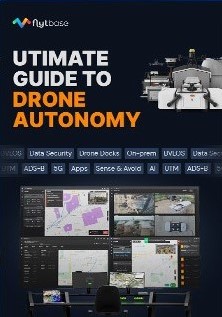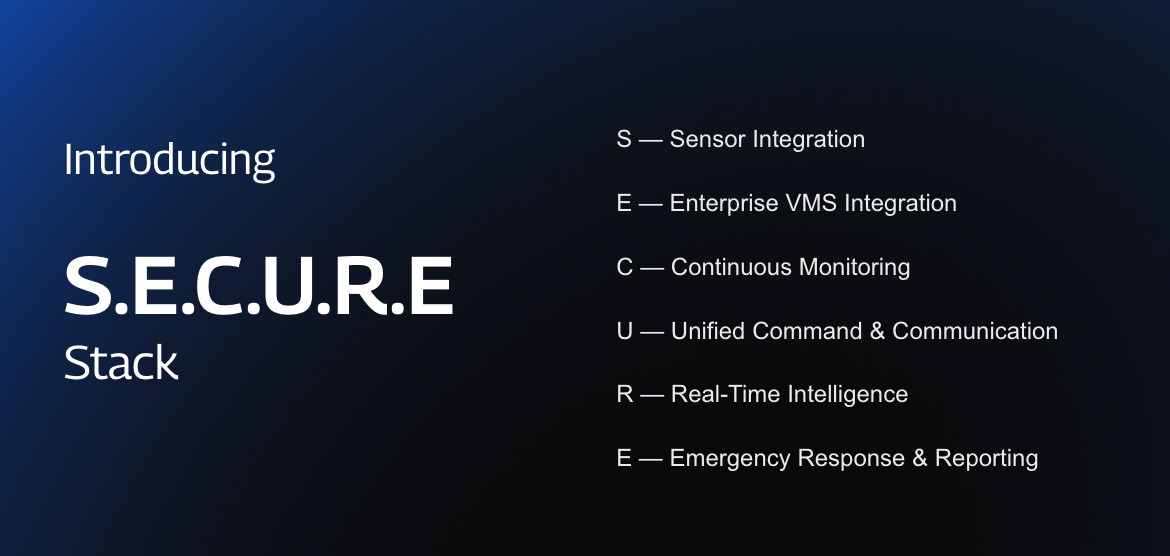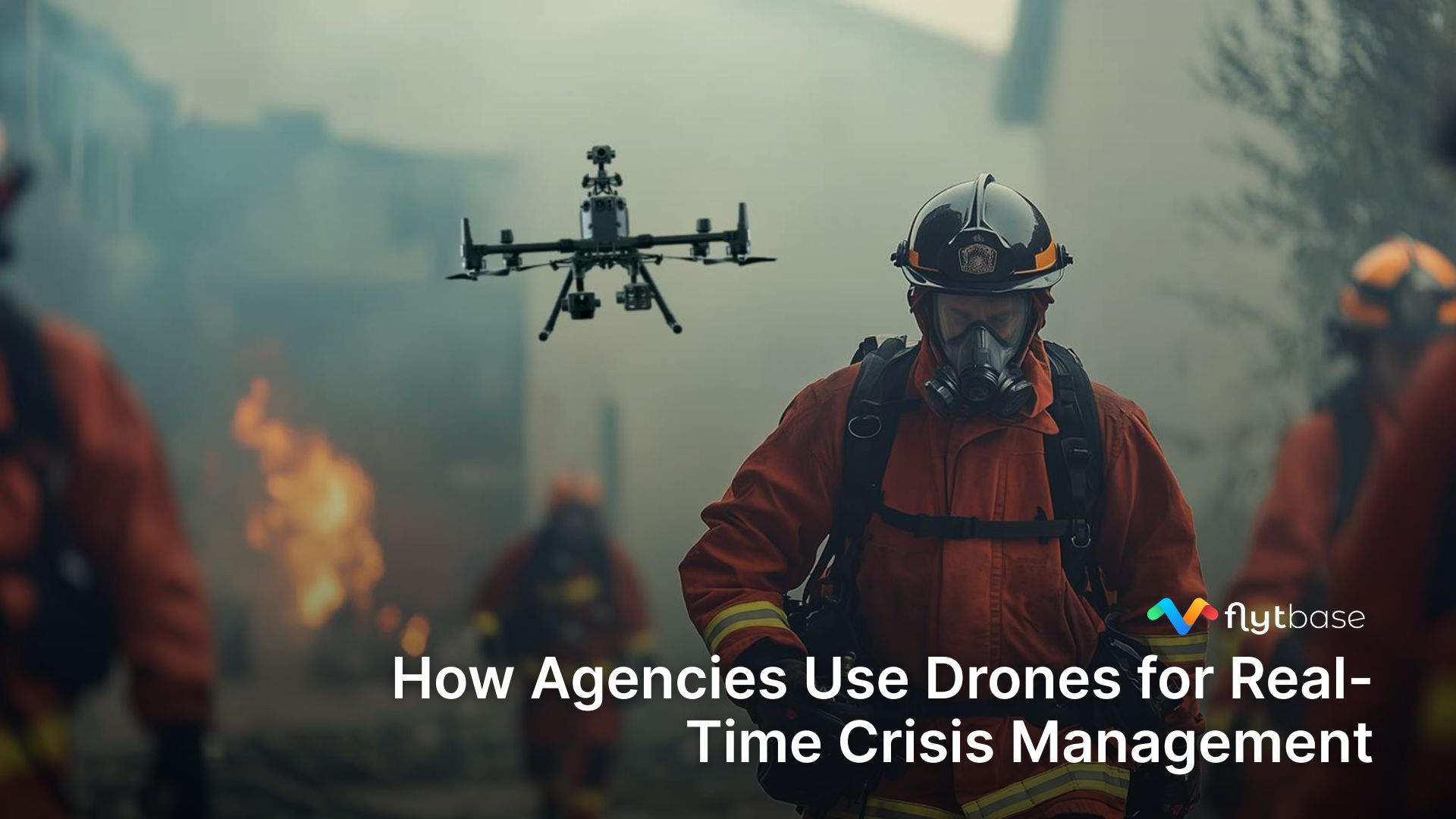Get Your Free Drone Autonomy Guide Today!

When we think about commercial drones, we mainly see them as a tool for aerial inspection and monitoring, since a lot of applications happen in this context. According to phillybyair.com, the construction industry was the largest user of drones, in terms of usage, in 2019, which further strengthens the perception of widespread use by this industry.
However, the COVID-19 pandemic has drastically changed the commercial drone ecosystem; we are now witnessing a rapid adoption of drones by various government agencies across the world for public safety use cases. For instance, during the global pandemic lockdown, police officials in the state of Gujarat, India created the country’s first drone command center from where a fleet of drones was managed to monitor the streets of the city of Ahmedabad; read the full case study.
If we dig deeper into the use of drones for public safety, there is one use case that is not often talked about, drones for highway patrolling. No! You won’t be getting a speeding ticket from a drone any time soon. But what drones can do is to act as first responders in emergency situations happening on highways. Clearly, drones aren’t meant to catch criminals and speeding vehicles, they are more like eyes-in-the-sky that provide situational awareness when something goes wrong.
Why Use Drones for Highway Patrolling
With regards to highway patrolling, drones provide the following advantages:
- A drone can reach a location much faster compared to ground-based vehicles, which is why they are ideal for the role of first responders.
- In situations like wildfires or avalanches, where roads get blocked, drones can be sent to assess the situation and identify people who are in distress.
- Drones can help optimize the resources to be deployed for emergency response, by providing crucial first-hand information on a fast-evolving situation to human first responders (police, fire, and paramedic).
- Drones can carry a variety of payloads, such as Automated External Defibrillators. A drone carrying an AED can save lives by rapidly reaching someone having a cardiac arrest in remote areas.
Instances of Drones Used for Patrolling
Save people from avalanches: Drones are actively being used in mountainous areas for patrolling ski paths and participating in search and rescue missions, in case of an avalanche.

According to BBC, 90% of avalanche victims survive if rescued within the first 15 minutes, but the odds of surviving drops to 20% after 45 minutes. Thus, the rapid response abilities of drones become ideal for such situations.In the Czech Republic, there is a nationwide agency called the Mountain Rescue Service of the Czech Republic that actively participates in rescuing people trapped by an avalanche.
{{pdf-form}}
They rely on a response system based on a network of drones. When an avalanche strikes, mobile vehicles carrying drones go to the affected area and deploy the drones. The drones carry a transceiver to hone into a particular frequency that skiers transmit. In this way, skiers trapped in snow are quickly located and saved.
Analyze crash sites: Iowa State Patrol has deployed drones to investigate crash sites on highways. Drones equipped with a high-resolution camera can be used to render 3D images and recreate accident sites for investigators. The state patrol is using this technology only for investigating accidents, not to monitor traffic violations.

How FlytBase can Power a Drone Response System for Highway Patrolling
FlytBase is a cloud-based application that offers a web dashboard to manage a fleet of drones. The dashboard has an integrated map that allows live tracking of all connected drones; it also has widgets to control the drones along with their payloads.
How Drones are Connected to FlytBase?
FlytBase supports both DJI and custom drones. DJI drones are connected using the FlytOS mobile app. The app connects with the Remote Controller (RC) and establishes a connection with the web application. When connecting custom drones based on PX4 and Ardupilot or DJI enterprise drones, a single board computer (SBC) is required; this could be a Raspberry Pi 3b+/4, Odroid N2, DJI Manifold 2, Nvidia Jetson Nano / TX2, etc. that is loaded with the FlytOS operating system and connected with the autopilot of the drone. The SBC allows the drones to communicate with FlytBase and receive instructions over the cloud.
FlytBase Business for Remote Patrolling
FlytBase is a standard offering that provides out of the box features to manage drones remotely. It is ideal for localized response systems that rely on both remote viewing capabilities and the support from local pilots. Here are some of the features that help police officials:
- FlytBase has a standard web-based dashboard to manage all connected drones. It has panels to monitor the live telemetry data of each drone and the live video feed coming from the drones. An officer having access to the dashboard can inspect an emergency situation remotely, and guide the personnel present at the scene. In the case of a DJI drone, an officer close to a scene might use the mobile app to share the footage with remote officers or an expert.

- FlytBase Business offers integration with a private cloud server to store videos captured by the drones. Police officials can use this feature to maintain a video record of every incident captured by the drones, which might prove to be useful in future investigations.

- This version supports the remote control of a variety of payloads, including payloads offered by DJI. Among the supported payloads include a thermal camera, spotlight, and loudspeaker. Such payloads are useful in special circumstances like night time search and rescue missions where time is a critical element.
-

FlytBase Enterprise
The FlytBase Enterprise version includes everything that the Business version has, plus additional features and the option of customization. This offering is ideal for establishing a full-fledged emergency or disaster response system that includes a network of Drone-in-a-Box installations, multi-user access, and integration with services like 911. Below is an illustration of how a system like this might work:

Understanding a drone-based response system using FlytBase Enterprise for highway Patrolling
Here we will explore how a drone-based highway response system might work using a hypothetical situation.
- At hour 21:00 on route 66, a tanker collides with a truck and catches fire. A nearby witness calls 911.

- An emergency operator receives the request and triggers an alert. The alert is then routed to nearby state troopers and the fire service.

- As fire engines are prepared for dispatch, a fire serviceman opens the FlytBase dashboard and selects the fire alert (made possible through integration with 911), which puts a pin on the map.

- The fireman requests drone coverage for the scene. Since FlytBase is integrated with a network of drone stations, powered by Drone-in-a-Box (DiaB) hardware, a mission is created automatically and a nearby drone is selected for the task.
- On receiving the command (over the internet), a drone automatically takes off from a DiaB and flies towards the location. FlytBase automatically selects an optimal path for the drone, taking into consideration airspace norms, by leveraging UTM services like Airmap.

- On reaching the location, the drone begins a live-video stream of the incident, providing crucial situational awareness to the firefighters. The stream is broadcasted (the drone maintains communication with FlytBase over 4G/LTE/5G network) to nearby state troopers.
- A state trooper with special privileges takes secure control of the drone’s camera and initiates a thermal scan to identify victims. The object detection capability of FlytBase allows the drone to identify crash victims. The trooper passes the information to the paramedics.
- When the battery of the drone becomes low, the drone automatically returns to the DiaB to recharge and stay ready for the next mission.
Summary
In this blog, we discussed the fast-evolving adoption of drones in public safety operations, especially highway patrolling. We touched upon the utility of drones in patrolling operations and specific instances where drones have saved lives.
We then discussed how FlytBase, as a solution, enables emergency responders to build a system where drones can autonomously go to an emergency situation and provide situational awareness.
If you or your police department is interested in such a drone system https://flytbase.com/contact.
FAQs
Find quick answers to common questions about compatibility, setup, features, and pricing



.webp)
.svg)
.webp)



